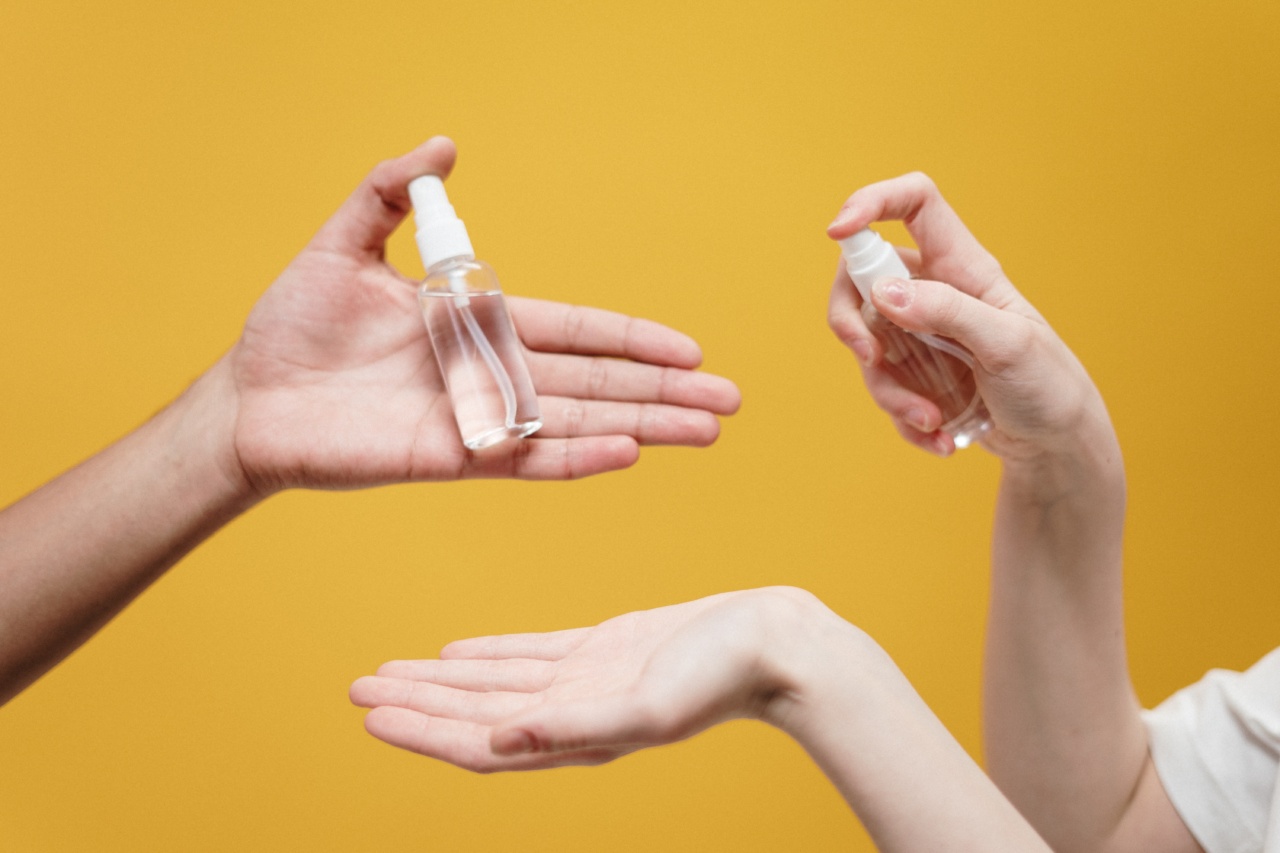Alcohol has been a part of human civilization for centuries, serving as a social lubricant, a stress reliever, and a source of relaxation for many individuals.
However, it is crucial to understand the importance of safe alcohol intake and the potential risks associated with excessive consumption. In this article, we will discuss the key facts and guidelines regarding safe alcohol intake to help you make informed decisions and prioritize your well-being.
The Standard Drink
Before delving into safe alcohol intake, it is vital to define a standard drink. This term varies across countries, but in general, a standard drink refers to a drink that contains about 14 grams (0.6 ounces) of pure alcohol.
This typically translates to:.
- 12 ounces (355 milliliters) of regular beer (~5% alcohol content)
- 8-9 ounces (237-266 milliliters) of malt liquor (~7% alcohol content)
- 5 ounces (148 milliliters) of wine (~12% alcohol content)
- 1.5 ounces (44 milliliters) of distilled spirits or liquor (~40% alcohol content)
Now that we have established what constitutes a standard drink, let us explore the guidelines for safe alcohol consumption.
Safe Alcohol Intake Guidelines
1. Moderate Drinking: The key to safe alcohol intake is moderation. Moderate drinking typically refers to consuming up to one standard drink per day for women and up to two standard drinks per day for men.
It is important to note that these guidelines are for healthy adults.
2. Binge Drinking: Binge drinking involves consuming a large quantity of alcohol in a short period. It is a dangerous practice and significantly increases the risk of accidents, injuries, and other alcohol-related problems.
For men, binge drinking is defined as consuming five or more standard drinks in under two hours, while for women, it is consuming four or more drinks in the same time frame.
3. Avoid During Pregnancy: If you are pregnant or planning to become pregnant, it is strongly recommended to abstain from alcohol consumption.
Exposure to alcohol during pregnancy can harm the developing fetus and lead to various birth defects and developmental issues.
4. Health Conditions: If you have certain medical conditions or take specific medications, it’s important to consult your healthcare provider regarding alcohol consumption.
Conditions such as liver disease, pancreatitis, heart problems, and certain mental health disorders may warrant complete abstinence from alcohol.
5. Underage Drinking: The legal drinking age varies from country to country, but it is generally advised for individuals under the legal drinking age (usually 21 years) to avoid alcohol completely.
The developing brain is highly vulnerable to the effects of alcohol, and early alcohol consumption can have long-lasting consequences.
6. Designated Driver: When consuming alcohol, prioritize your safety and the well-being of others. If you plan to drink, avoid driving or operating machinery.
Designate a non-drinking driver or use public transportation or ride-sharing services to ensure everyone’s safety.
The Risks of Excessive Alcohol Consumption
While moderate drinking can be enjoyed responsibly by many individuals, excessive alcohol consumption can have severe consequences on your physical and mental health. Here are some of the risks associated with excessive alcohol intake:.
1. Addiction: Alcohol is highly addictive, and regular excessive alcohol consumption can lead to alcohol dependence and addiction. Alcohol addiction can be challenging to overcome and often requires professional assistance.
2. Liver Damage: Prolonged excessive alcohol consumption can cause liver inflammation, fatty liver disease, alcoholic hepatitis, and ultimately, cirrhosis.
The liver plays a vital role in detoxification and overall well-being, and damage to this organ can have serious health implications.
3. Increased Cancer Risk: Excessive alcohol intake has been linked to an increased risk of various cancers, including liver, mouth, throat, esophagus, breast, and colorectal cancer.
Minimizing alcohol consumption can help reduce the likelihood of developing these types of cancer.
4. Mental Health Issues: Alcohol is a depressant that can exacerbate existing mental health conditions such as anxiety and depression. It can also impair judgment and increase the risk of suicidal thoughts and behaviors.
5. Accidents and Injuries: Alcohol impairs coordination, judgment, and reaction time, increasing the risk of accidents, falls, and injuries.
It is estimated that alcohol-related accidents account for a significant number of emergency room visits and fatalities each year.
6. Relationship Struggles: Excessive alcohol consumption can strain relationships with family, friends, and romantic partners.
Alcohol-related conflicts, emotional instability, and erratic behavior can undermine trust and deeply affect interpersonal connections.
Recognizing Problematic Drinking
It is pivotal to address problematic drinking habits promptly. Here are some signs that indicate a potential issue with alcohol:.
1. Cravings: Frequent, intense cravings for alcohol can be a sign of addiction or dependence.
2. Loss of Control: Difficulty limiting or stopping alcohol consumption despite attempts to cut back or quit is a red flag.
3. Neglecting Responsibilities: Prioritizing drinking over obligations, work, and personal responsibilities is often a sign of problematic alcohol use.
4. Relationship Struggles: Consistently experiencing conflicts and disturbances in personal relationships due to alcohol consumption is cause for concern.
5. Physical Withdrawal Symptoms: Experiencing withdrawal symptoms such as shakiness, sweating, nausea, or anxiety when attempting to stop drinking or reducing intake can indicate dependence.
If you or someone you know exhibits these signs, it is crucial to seek professional help or encourage them to do so. Treatment options and support networks are available to address alcohol-related problems.
Conclusion
Safe alcohol intake revolves around moderation and responsible decision-making.
By understanding the guidelines for moderate drinking, being aware of the risks associated with excessive consumption, and recognizing signs of problematic drinking, you can make informed choices that prioritize your well-being. Remember, drinking responsibly ensures a healthier and happier life.































